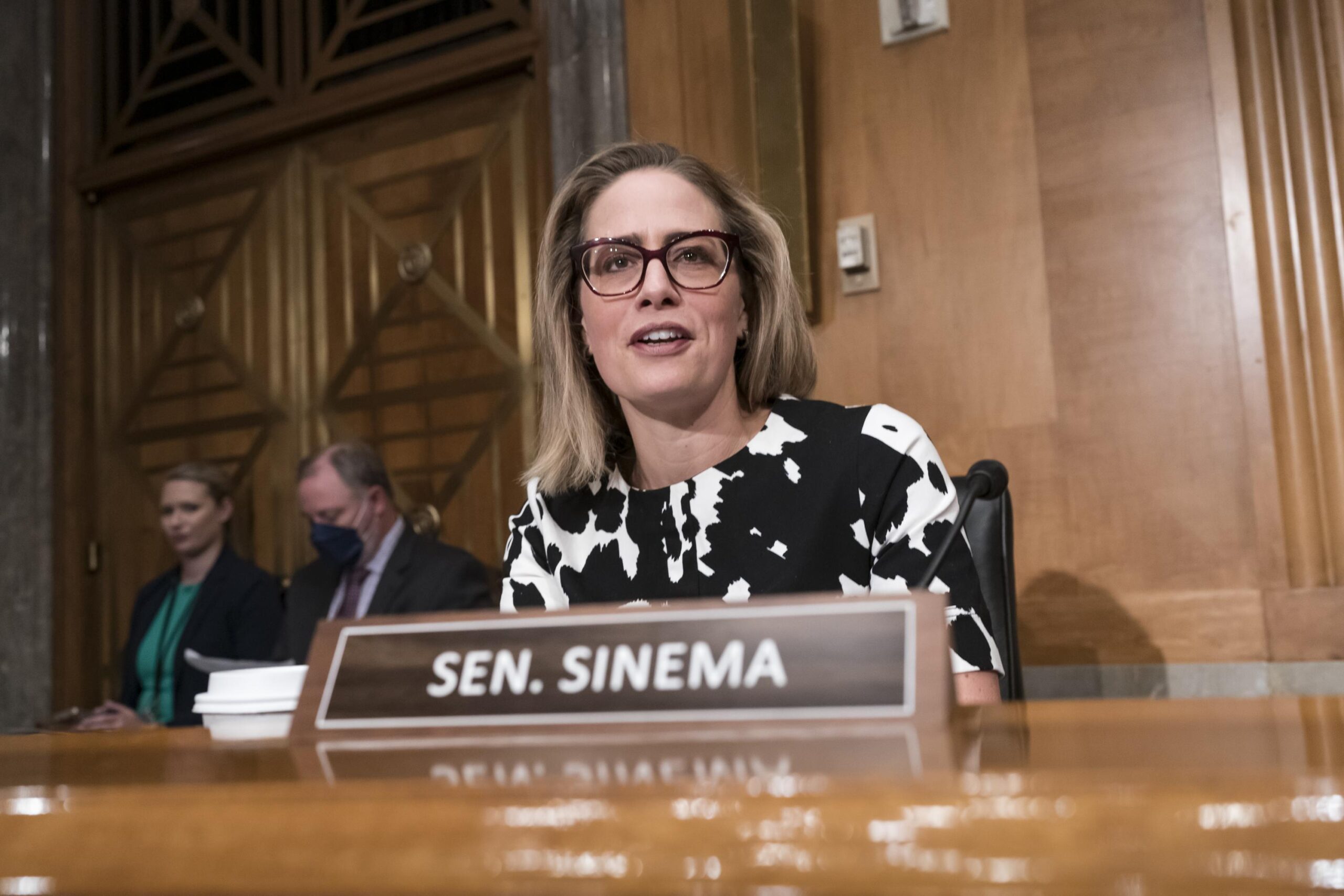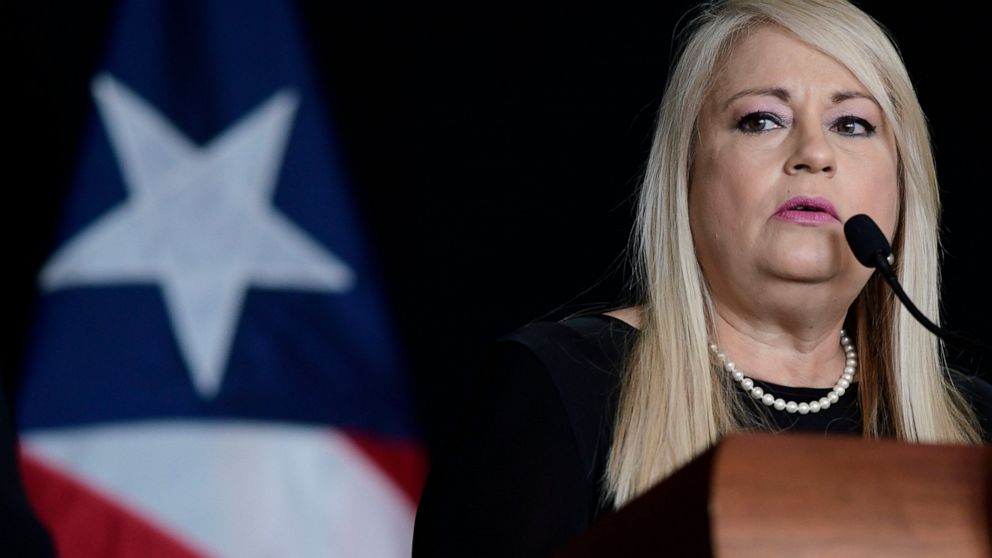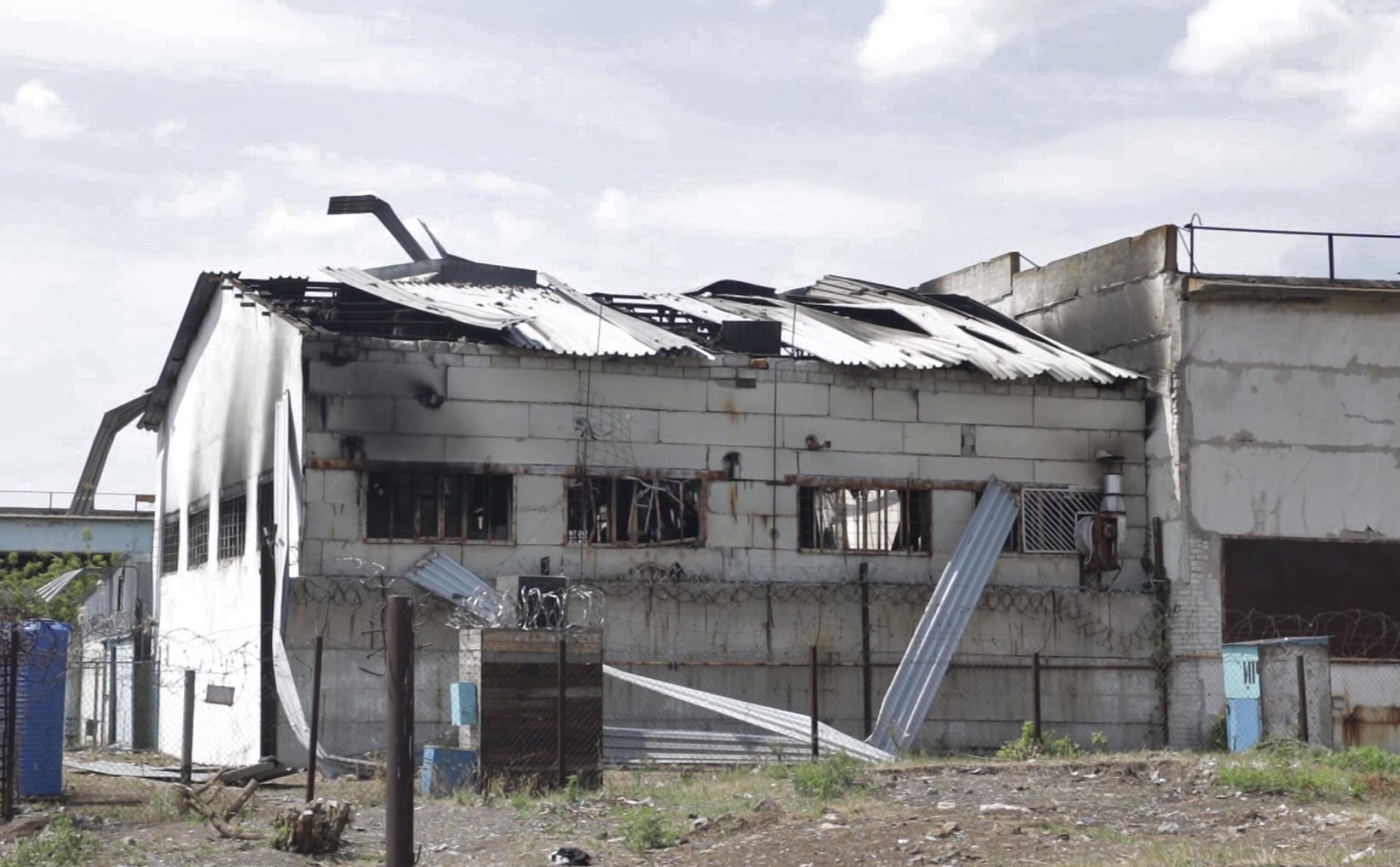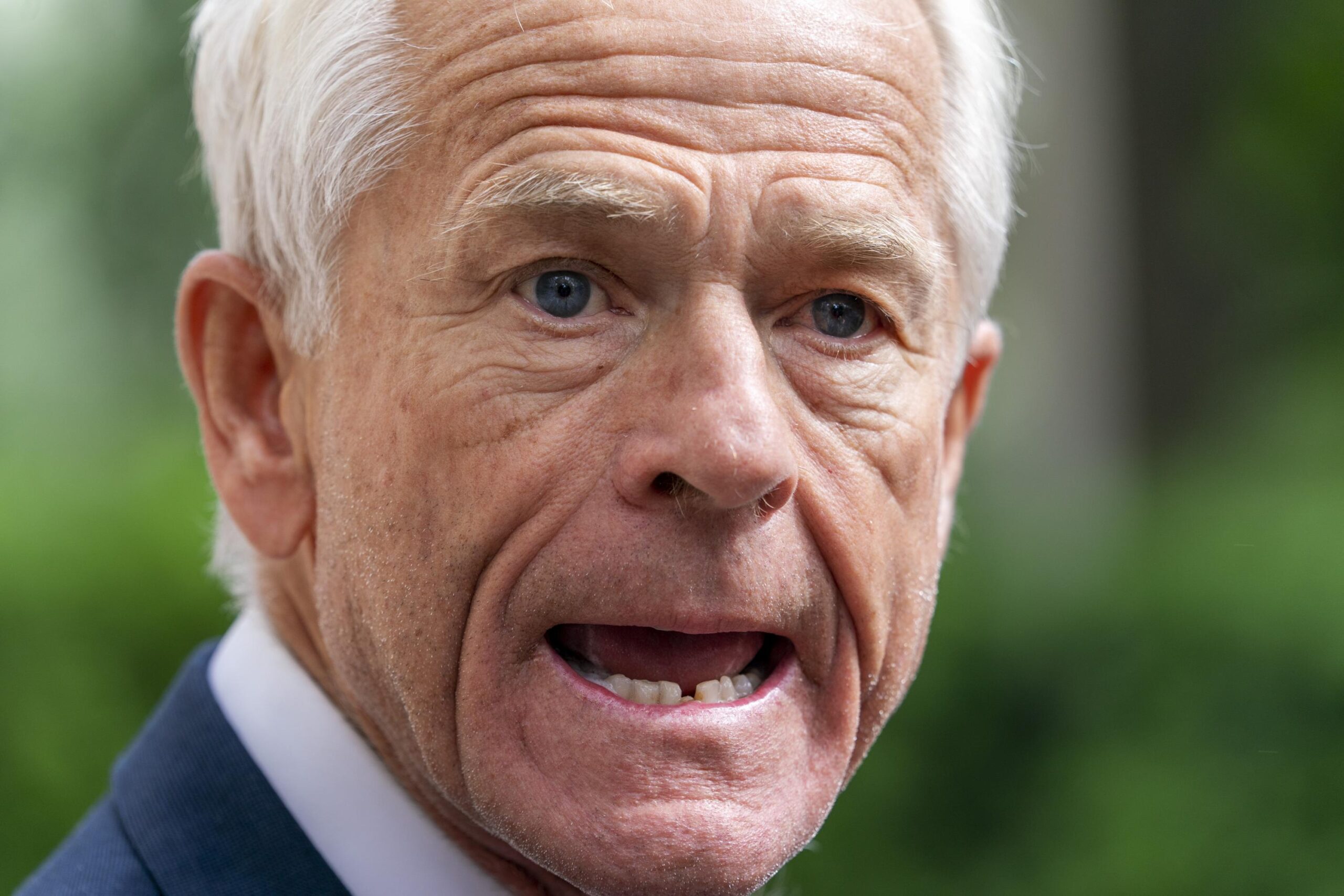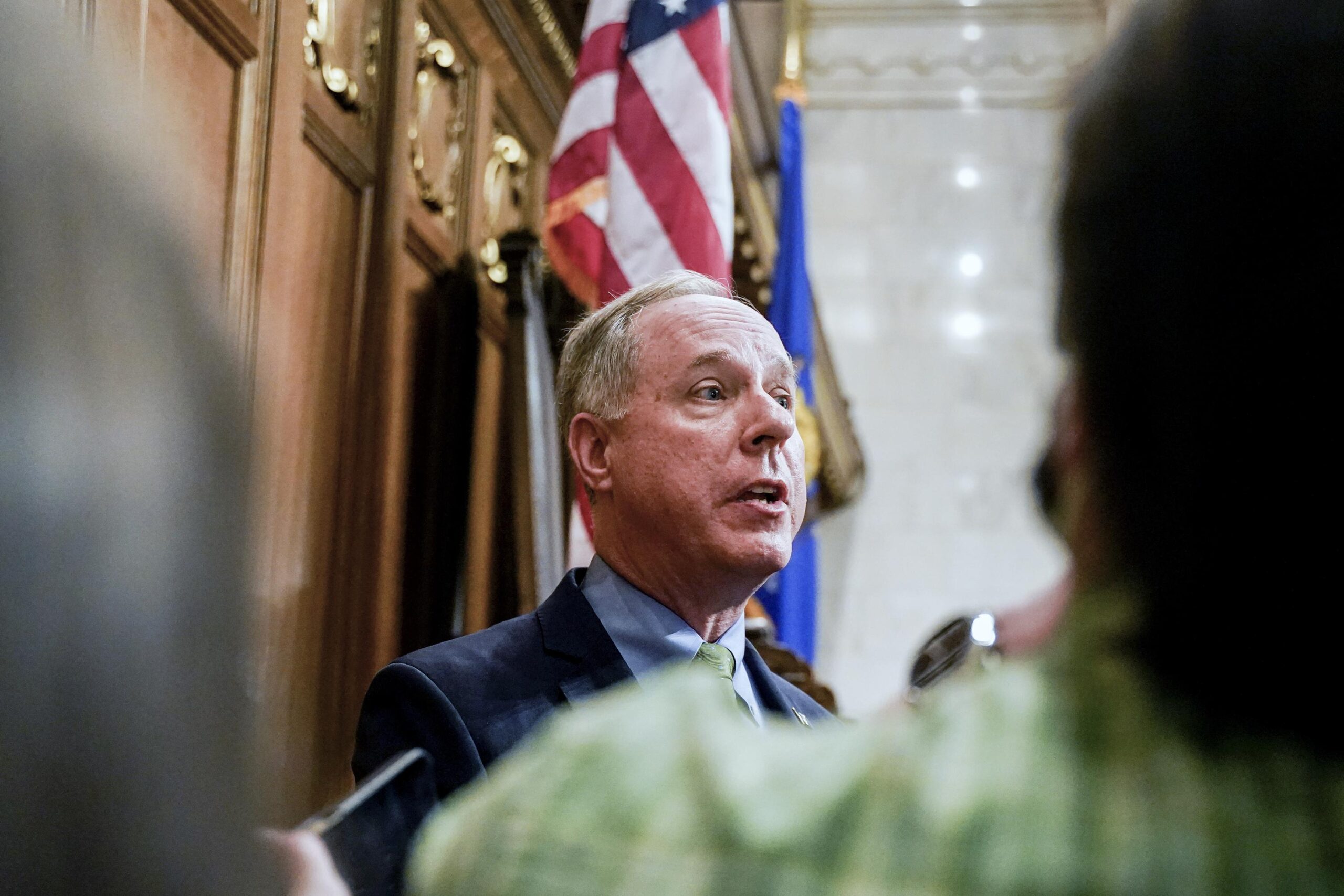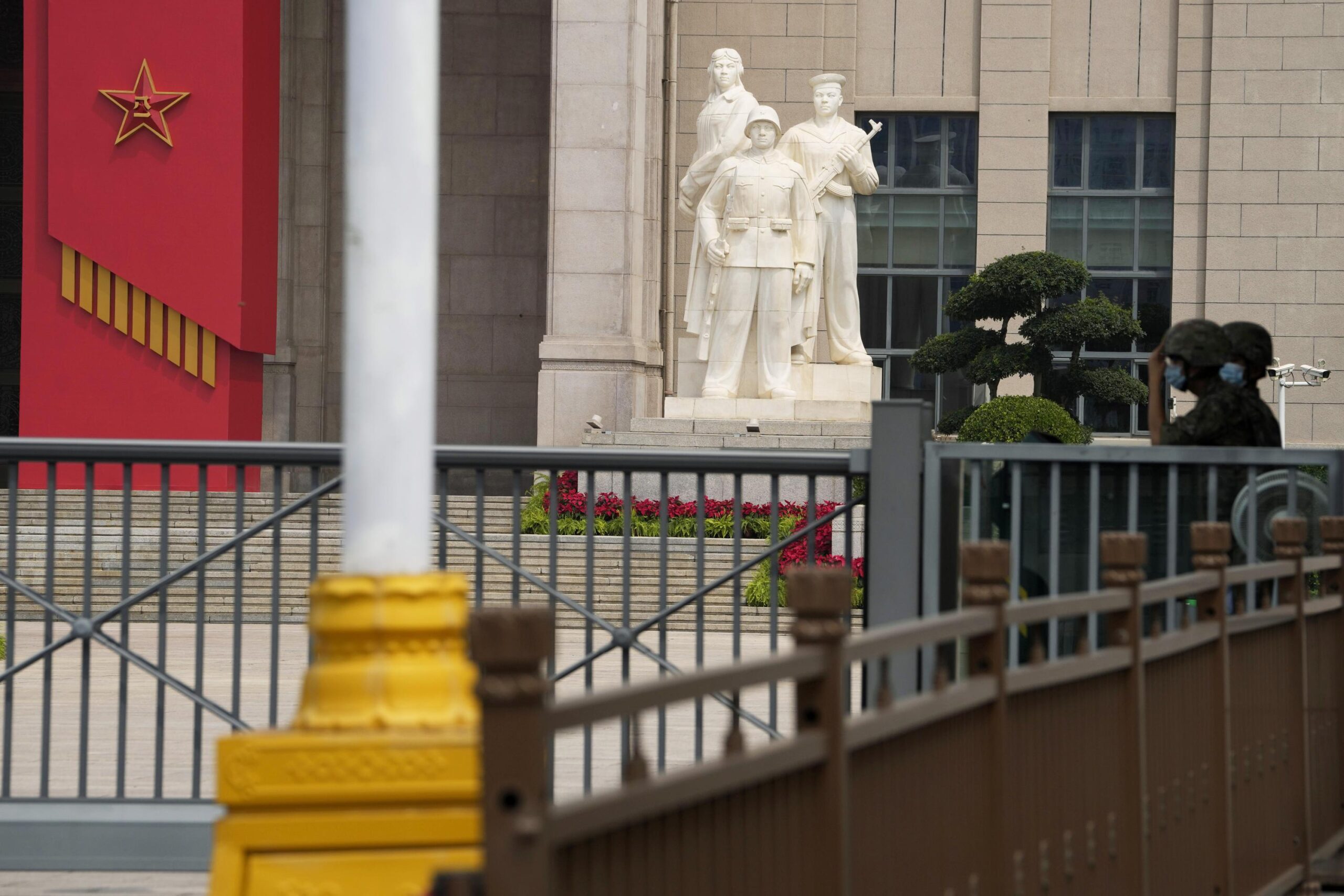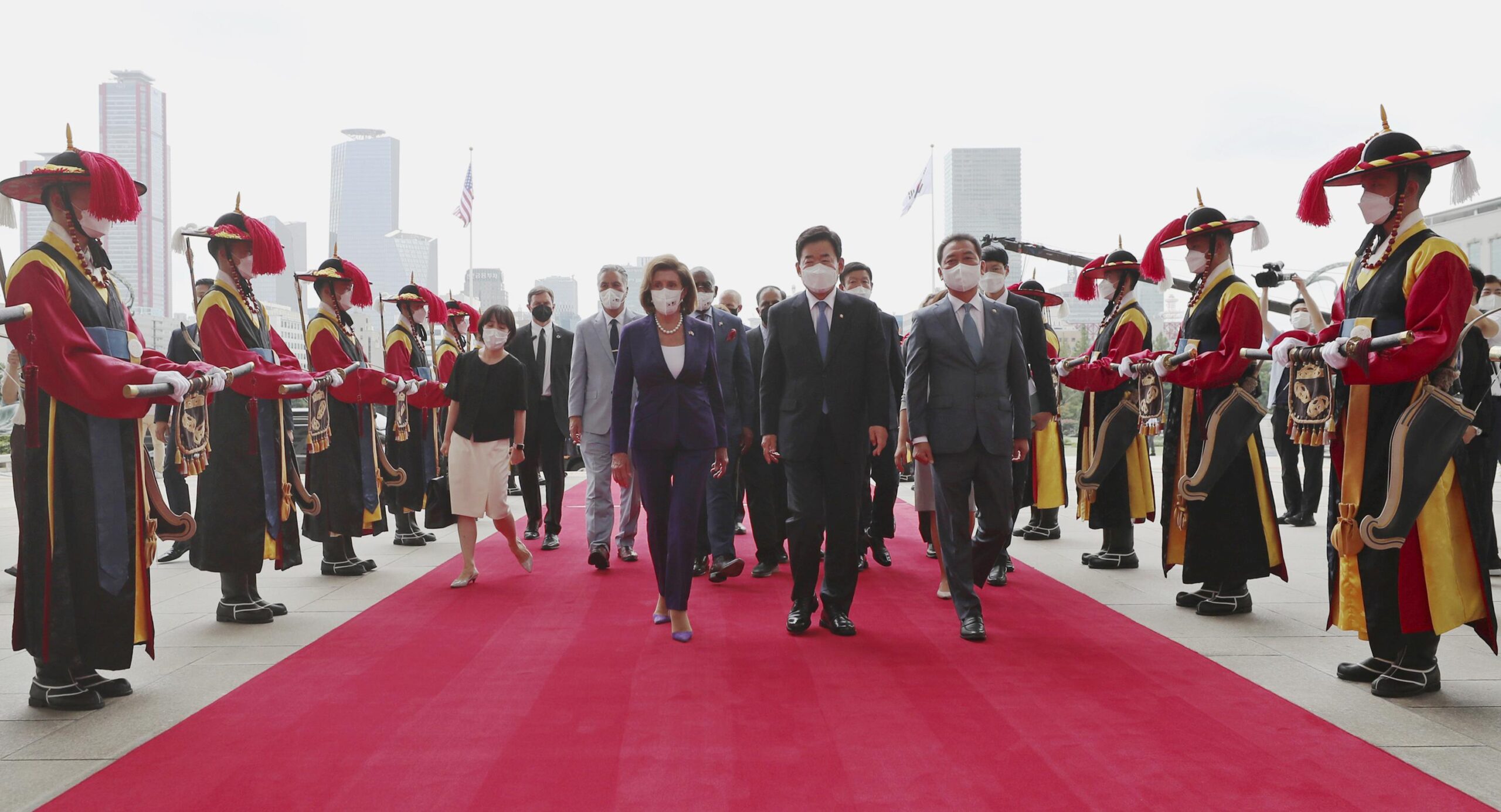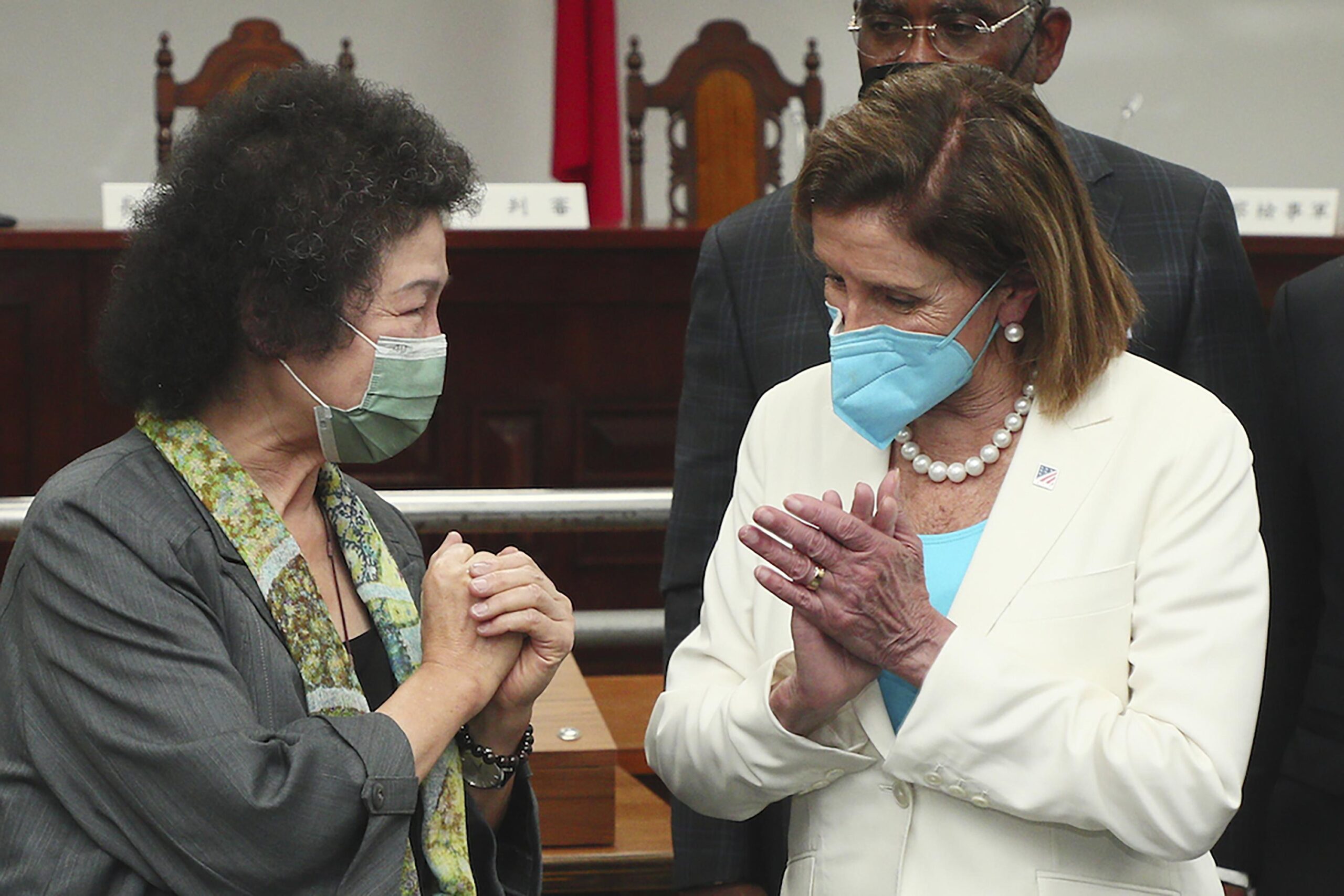WASHINGTON (AP) — Senate Democrats have agreed to eleventh-hour changes to their marquee economic legislation, they announced late Thursday, clearing the major impediment to pushing one of President Joe Biden’s paramount election-year priorities through the chamber in coming days.
Sen. Kyrsten Sinema, D-Ariz., a centrist seen as the pivotal vote in the 50-50 chamber, said in a statement that she had agreed to revamp some of the measure’s tax and energy provisions and was ready to “move forward” on the bill.
Senate Majority Leader Chuck Schumer, DN.Y., said he believed his party’s energy, environment, health and tax compromise “will receive the support of the entire” Democratic membership of the chamber. His party needs unanimity and Vice President Kamala Harris’ tie-breaking vote to move the measure through the Senate over certain solid opposition from Republicans, who say the plan’s tax increases and spending would worsen inflation and damage the economy.
The announcement came as a surprise, with some expecting talks between Schumer and the mercurial Sinema to drag on for days longer without guarantee of success. Schumer has said he wants the Senate to begin voting on the legislation Saturday, after which it would begin its summer recess. Passage by the House, which Democrats control narrowly, could come when that chamber returns briefly to Washington next week.
Democrats revealed few details of their compromise, and other hurdles remained. Still, final congressional approval would complete an astounding resurrection of Biden’s wide-ranging domestic goalsthough in a more modest way.
Democratic infighting had embarrassed Biden and forced him to stop down a far larger and more ambitious $3.5 trillion, 10-year version, and then a $2 trillion alternative, leaving the effort all but dead. Instead, Schumer and Sen. Joe Manchin, the conservative maverick Democrat from West Virginia who derailed Biden’s earlier efforts, unexpectedly negotiated the slimmer package two weeks ago.
Its approval would let Democrats appeal to voters by boasting they are moving to reduce inflation — though analysts say that impact would be minor — address climate change and increase US energy security.
“Tonight, we’ve taken another critical step toward reducing inflation and the cost of living for America’s families,” Biden said in a statement.
Sinema said Democrats had agreed to remove a provision raising taxes on “carried interest,” or profits that go to executives of private equity firms. That’s been a proposal she has long opposed, though it is a favorite of Manchin and many progressives.
The carried interest provision was estimated to produce $13 billion for the government over the coming decade, a small portion of the measure’s $739 billion in total revenue.
It will be replaced by a new excise tax on stock buybacks which will bring in more revenue than that, said one Democrat familiar with the agreement. The official, who was not authorized to discuss the deal publicly and spoke on condition of anonymity, provided no other detail.
Sinema said she had also agreed to unspecified provisions to “protect advanced manufacturing and boost our clean energy economy.”
She noted that Senate parliamentarian Elizabeth MacDonough is still reviewing the measure to make sure no provisions must be removed for violating the chamber’s procedures. “Subject to the parliamentarian’s review, I’ll move forward,” Sinema said.
The measure must adhere to those rules for Democrats to use procedures that will prevent Republicans from mounting filibusters, delays that require 60 votes to halt.
Schumer said the measure retained the bill’s language on prescription drug pricing, climate change, “closing tax loopholes exploited by big corporations and the wealthy” and reducing federal deficits.
He said the bill “addressed a number of important issues” that Democratic senators raised during talks. He said the final measure “will reflect this work and put us one step closer to enacting this historic legislation into law.”
Left unclear was whether changes had been made to the bill’s 15% minimum corporate tax, a provision Sinema has been interested in revising. It would raise an estimated $313 billion, making it the legislation’s largest revenue raiser.
That levy, which would apply to around 150 corporations with income exceeding $1 billion, has been strongly opposed by business, including by groups from Sinema’s Arizona.
The final measure was expected to include assistance that Sinema and other Western senators have been trying to add to help their states cope with epic drought and wildfires that have become commonplace. Those lawmakers have been seeking around $5 billion but it was unclear what the final language would do, said a Democrat following the bargaining who would describe the effort only on condition of anonymity.
The measure will also have to withstand a “vote-a-rama,” a torrent of nonstop amendments expected to last well into the weekend, if not beyond. Republicans want to kill as much of the bill as possible, either with the parliamentarian’s rulings or amendments.
Even if their amendments lose — as is certain for most — Republicans will consider it mission accomplished if they force Democrats to take risky campaign-season votes on touchy issues like taxes, inflation and immigration.
Democratic amendments are expected as well. Progressive Sen. Bernie Sanders, I-Vt., has said he wants to make his health care provisions stronger.
The overall bill would raise $739 billion in revenue. That would come from tax boosts on high earners and some huge corporations, beefed-up IRS tax collections and curbs on drug prices, which would save money for the government and patients.
It would spend much of that on initiatives helping clean energy, fossil fuels and health care, including helping some people buy private health insurance. That would still leave over $300 billion in the measure for deficit reduction.
.
